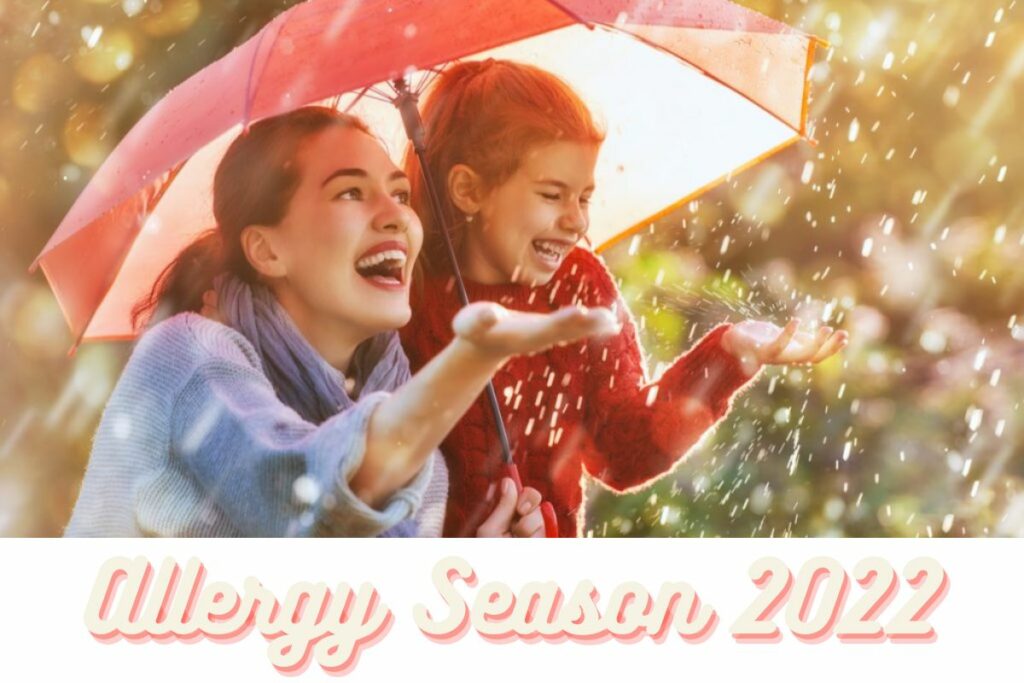If you haven’t already succumbed to a runny nose, itchy eyes, and continuous sneezing, you’ll shortly.
You’re not alone if you’ve noticed an increase in the severity of your allergy symptoms. Climate change, according to Dr. Mark Corbett of the American College of Allergy, Asthma, and Immunology (ACAAI), maybe a contributing factor to the severity of allergy seasons.
According to him, the pollen seasons have gotten longer and things are growing warmer. “As you increase CO2 levels in the atmosphere, plants rely on it for their energy. As a result of increased CO2 levels in the atmosphere, plant growth and pollen production may increase.”
Dr. Antoine Azar, clinical head of the division of allergy and clinical immunology and assistant professor at the Johns Hopkins University School of Medicine, told TODAY that between 10 and 30 percent of the world’s population suffers from allergies. We encounter more and more people every year,” says the doctor. “It’s very frequent.”
Love After Lockup Season 5 Release Date, Cast & More Details!
According to Corbett, allergies have a hereditary component. Adults who are experiencing seasonal allergies for the first time may want to check with their parents to see whether they suffer from the same condition. Perhaps you’ve recently relocated to a location where pollen from a variety of various species is more common, and you’re more sensitive to the pollen you’re exposed to.
Antihistamines, whether you’re a seasoned allergy season veteran or you’re just learning about them for the first time, can help alleviate the symptoms of seasonal allergies.
Table of Contents
The Most Common Seasonal Allergy Symptoms
Some of the most frequent seasonal allergy symptoms, according to doctors, include:
- Itchy, watery eyes
- Itchy throat
- Stuffy or runny nose
- Sneezing
- Tiredness or fatigue
- Headaches
Your Do’s And Don’ts Guide To 2022 Allergy Season pic.twitter.com/NttXsm6LHo
— The Mint Hill Times (@minthilltimes) March 28, 2022
How long do Seasonal Allergy Symptoms Last?
Numerous seasonal allergens peak at different times of the year, thus depending on your allergies, you may or may not experience your regular allergy symptoms at certain seasons.
According to Corbett, tree pollen is the primary culprit for the onset of spring allergy symptoms in March. According to him, this period usually lasts until the end of April. After that, the grass pollen season begins in May and lasts into the summer. Finally, ragweed is at its peak from late summer to the beginning of autumn.
It’s possible to suffer from “seasonal” allergy symptoms if you’re allergic to more than one or even all of these pollens at once. Spring allergy sufferers, says Dr. Courtney Jackson Blair, past president of the Greater Washington Allergy, Asthma, and Immunology Society, are having problems from late winter to early summer, according to Blair.
According to where you live in the United States, the exact seasonal patterns are different. The spring and tree pollen season may begin earlier in the South than in the rest of the country, according to Corbett. Blair also noted that some allergies, like “cedar fever” in Texas and Oklahoma, are known to be particularly severe in certain places.
The spring flower petals we see are not a primary cause of allergy symptoms, contrary to popular perception. According to Corbett, “pretty objects don’t usually create a lot of airborne pollen. The insects that pollinate them are bees, which is why they exist.
Do You Have Seasonal Allergies or COVID-19?
Seasonal allergies are inconvenient at any time of year, but during the COVID-19 epidemic, they provide additional difficulties (and confusion). According to Corbett, “with COVID out there, discriminating between the two has been tough,” as the symptoms of allergies and a coronavirus infection can sometimes overlap.”
Since a viral infection causes congestion and a running nose, some of the symptoms can be compared between the two, according to Azar. However, there are techniques to distinguish between the two, he noted.
There are several misconceptions about allergens, such as the fact that “hay fever” does not induce a temperature. When your nose and throat are stuffy and your temperature is rising, it’s a good clue that you have an illness other than allergies.
Azar added that if you’re experiencing systemic symptoms like body aches or an overall feeling of being unwell, you should look past your allergies. People who take COVID may suffer from diminished senses of smell and taste, which complicates matters further.
A COVID-19 test is a good idea if you’re dealing with any kind of confusing symptoms and aren’t sure what’s wrong.
How to Manage Seasonal Allergies at Home
Seasonal allergies can be treated at home with a variety of over-the-counter drugs. Nasal corticosteroid sprays are now the most effective treatment option, according to Azar. These drugs operate by lowering the body’s inflammatory response to allergens over time.
Conclusion
‘Allergy Season 2022’ is a must-see if you’re a fan. To make you go “Awwwww” when you see it, the series includes a piece of breaking news and alerts everyone in the world. It’s captivating because of the animation effects and the high-quality images. Please watch it if you haven’t already and let me know what you think in the comments section below!
If you like this article then follow our website unitedfact.com & don’t forget to follow our social media handles.
Read Also:-

